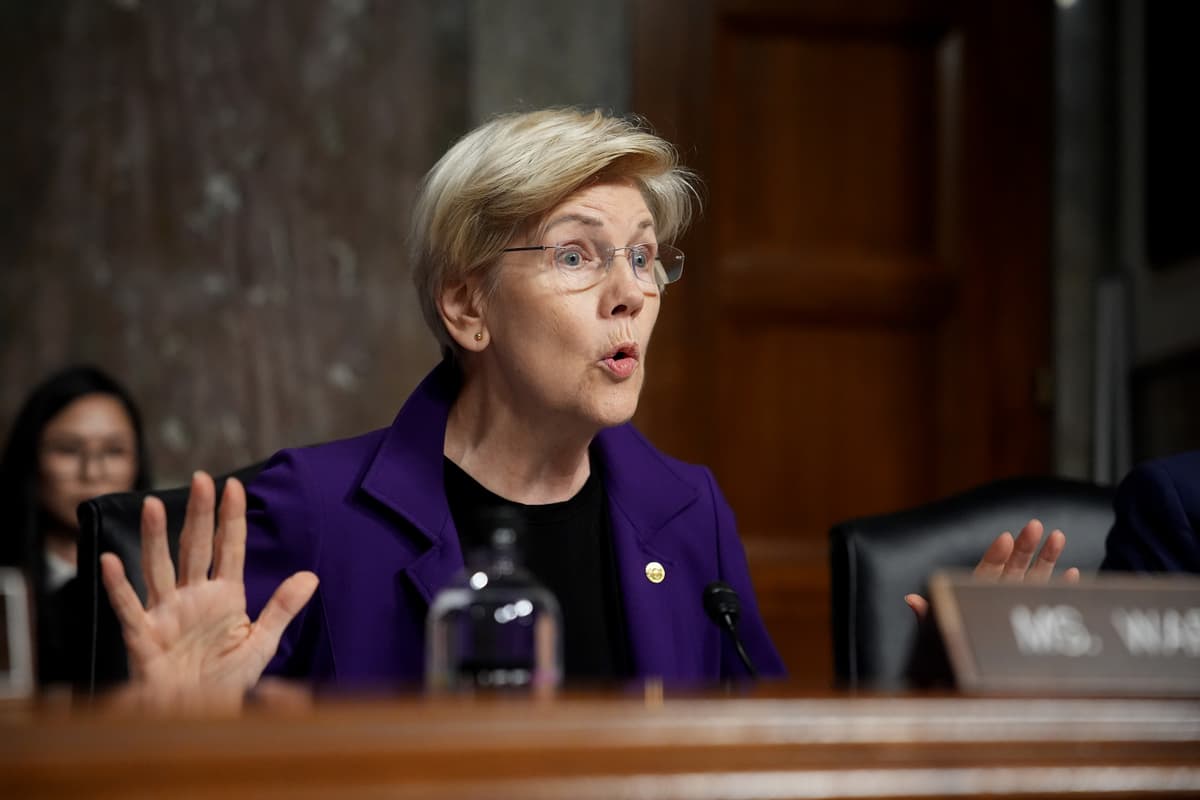Elizabeth Warren’s Siren Song
Remember what happened at Troy.

Beware of Greeks bearing gifts, the old saying goes — or, in today’s case, of Massachusetts Democrats offering cooperation. That’s the warning to President Trump in light of Senator Warren’s vow that she’s “ready to work with” Republicans on “policies that rebuild the middle class.” The GOP would be wise to view offers like Ms. Warren’s with caution, though, despite the temptation among neo-populists to embrace regulation and subsidies as policy tools.
Ms. Warren, writing in the Journal, airs her siren song in terms designed to entice the new populist wing of the GOP. “What Americans have asked for in election after election,” she contends in the op-ed, is “unrigging the economy to make life more affordable for working families.” If the president-elect wants to join with Ms. Warren, she says, “I’m in.” At the risk of looking a gift horse in the mouth, Trump will want to tread carefully.
Ms. Warren talks a good game. She urges Trump and Republicans to “continue President Biden’s popular fights against junk fees, corporate consolidation and price gouging.” What savvy politico is eager to pipe up in favor of any of that? Trump himself, Ms. Warren notes, “one-upped Democrats by proposing to cap credit-card rates at 10%.” Quoth Ms. Warren: “I’ll work with Republicans to make it happen.”
If the GOP falls for that, though, we have a bridge to sell them at Brooklyn. The kind of demagoguery retailed by Ms. Warren — and Mr. Biden, for that matter — is hardly a constructive path forward for Trump and Republicans. Even if Ms. Warren’s proposals might appeal at first glance, a closer look discloses the destructive economic effects, as well as a host of unintended and undesirable consequences, that would flow from her regulatory agenda.
Feature, say, the crusade against so-called “junk fees” — another term for price controls. Limits on what credit card firms can charge vendors and customers for late fees and the like might sound good. Yet as economist Veronique de Rugy noted, prior attempts to cap debit card fees failed to yield any savings for consumers. Worse, it led to harm, by causing “widespread elimination of debit-card rewards programs and fewer banks offering free checking accounts.”
There’s every reason to expect that federal limits on credit card fees would upend the kind of rewards programs that millions of Americans have come to enjoy. Plus, too, what’s the logic of having Uncle Sam meddle in the relationships between Americans and their credit card providers? If consumers object to the fees, after all, they are free to switch cards or use cash. The war on “junk fees” is yet another attempt to expand the grasp of the federal leviathan.
In the same way, quarrels with “corporate consolidation” translate to the kind of antitrust lawsuits that are currently punishing firms like Google for their success. As for laments over “price gouging,” the voters in November already repudiated Vice President Harris’s effort to place that gripe at the heart of her economic plans. What liberals decry as “gouging” is better known as the invisible hand of the market setting prices by balancing supply and demand.
Complaints about “price gouging” really boil down to dismay over inflation, which Mr. Biden, Ms. Harris, and the Democrats ignited by federal overspending. The other root of the Biden-Harris inflation wave is overzealous federal regulation — like Ms. Warren is backing. The actual way to get control of prices is to stabilize the value of the dollar, which would require, in the long run, a return to a currency tied to the real measure of value: Gold
More broadly, the question confronting Republicans as a new administration comes into power is whether they will adhere to the free-market, limited-government policies that have traditionally fueled growth, or whether they will fall prey to the left’s appeals for statist overregulation and cronyism. As Ms. Warren’s op-ed makes clear, the temptation to stray from tried-and-true GOP principles will be strong. Just remember what happened at Troy.

